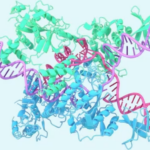Mr. Ndiaye, a member of the newly formed UN advisory committee on machine learning, shared insights with UN News regarding the future. Drawing from his background in spearheading Senegal’s digital evolution in higher education, serving as an African Union specialist in shaping the Pan-African Strategy on AI, and contributing to the Global Partnership on Artificial Intelligence (GPAI).

Courtesy of SeydinaNdiaye
Seydina NDiaye, an AI expert from Senegal, is among the 38 professionals appointed to the UN High-Level Advisory Body on Artificial Intelligence.
UN News: In what ways can AI benefit Africa? Seydina Moussa Ndiaye: Several African nations are formulating targeted strategies for artificial intelligence. While a pan-African strategy aligned with a Western perspective on AI development is in the works.
Entrepreneurs, especially the youth, are increasingly drawn to this field, displaying a genuine thirst for knowledge in AI. External support can expedite the growth of this burgeoning interest.
AI holds promise in addressing certain limitations, such as enhancing agricultural practices and alleviating staffing shortages in the healthcare sector.
Preserving Africa’s unique cultural identity is paramount. Leveraging AI advancements can amplify the recognition and appreciation of African social identities globally.

UNHCR/Agnese Morganti
Bernice Kula-Kula, a refugee from the DR Congo, is pursuing a UNICORE scholarship focusing on computer architecture, security, and artificial intelligence, supported by Italy and the UN.
What are the potential risks of AI that could impact Africa negatively? Seydina Moussa Ndiaye: The primary concern for me is the specter of colonization. Dominant multinational AI corporations may impose global solutions, overshadowing regional initiatives.
The bulk of data generated in Africa is controlled by foreign corporations, leading to a drain of local expertise. Africa could unwittingly become a testing ground for novel technologies, raising ethical and regulatory challenges.
The absence of stringent oversight could pave the way for unethical experimentation, posing significant risks to the continent’s well-being.

Kensuke Matsue/United Nations
During the “The Future of Anything- Sustainable Development in the Age of Rapid Technological Change” event, UN Deputy Secretary-General Amina Mohammed engages in a dialogue with Sophia the machine.
Do you envision the UN’s new AI advisory panel as a forum to address these concerns? Seydina Moussa Ndiaye: Absolutely. The committee, comprising seasoned global experts, provides an open platform for critical discussions on pressing issues.
Ensuring African representation in these deliberations is essential to foster inclusive global dialogue and equitable access to technological advancements.
Failure to engage proactively could exacerbate existing disparities, underscoring the need for diverse voices in shaping the future of AI governance.






